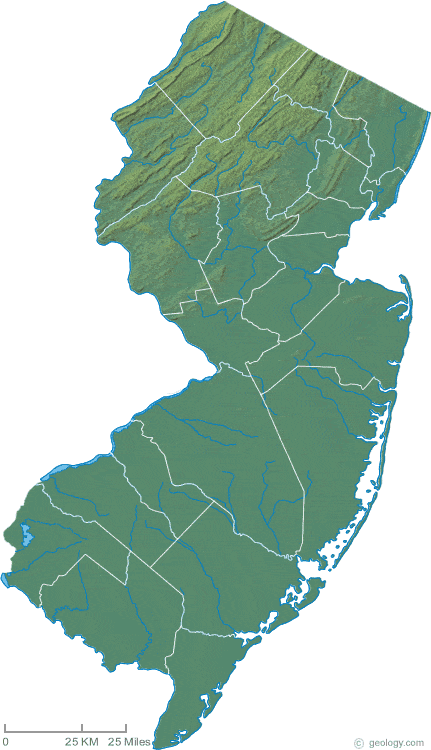Jersey

Because worse is better.
Jersey is a gem for people who want to write excellent APIs but have their own opinions on how to structure their code and projects.
Jersey provides sensible defaults that are composed with sensible pieces, making it easy to compose your own stack or use Jesery's compositions.
Features
- env-conf for easy ENV based configuration
- request context aware request logging
- structured data loggers - json and logfmt
- unified exception handling
Jersey.setup
Setup embodies a few opinions we have about apps:
- Having a notion of 'environment' where the configuration lives
- Using a dependency manager
- Always using UTC for the Time zone
- Always printing times in ISO8601 format
Jersey.setup allows any app that has Gemfiles and .env files to
"just work" in development and production with just:
require 'jersey'
Jersey.setup
Which is usually included as the first line of code in a library consuming
Jersey. For tests, you will want to set RACK_ENV to test before
requiring your library that uses the above.
Jersey::API::Base
Combines all of the Jersey middleware with a few standard middleware from Rack and sinatra-contrib.
class API < Jersey::API::Base
get '/hello' do
Jersey.log(at: "hello")
'hello'
end
get '/not_found' do
raise NotFound, "y u no here?"
end
end
$ curl http://localhost:9292/hello
Server logs:
at=start method=GET path=/hello request_id=2c018557-d246-4b04-a7d7-fc74bae67ec0 now=2014-11-11T18:04:25+00:00
at=hello now=2014-11-11T18:04:25+00:00 request_id=2c018557-d246-4b04-a7d7-fc74bae67ec0
at=finish method=GET path=/hello status=200 size#bytes=5 route_signature=/hello elapsed=0.000 request_id=2c018557-d246-4b04-a7d7-fc74bae67ec0 now=2014-11-11T18:04:25+00:00
Unified, structured logging with all the info you will wish you had:
$ curl http://localhost:9292/not_found | jq '.'
Server logs:
at=start method=GET path=/not_found request_id=f3085630-05cf-4314-a7dd-5855e752594b now=2014-11-11T18:05:15+00:00
at=finish method=GET path=/not_found status=404 size#bytes=6212 route_signature=/not_found elapsed=0.001 request_id=f3085630-05cf-4314-a7dd-5855e752594b now=2014-11-11T18:05:15+00:00
Response:
{
"error": {
"type": "NotFound",
"message": "y u no here?",
"backtrace": [
"/Users/csquared/projects/jersey/examples/readme.ru:11:in `block in <class:API>'",
"/Users/csquared/projects/jersey/.bundle/bundle/ruby/2.1.0/gems/sinatra-1.4.5/lib/sinatra/base.rb:1603:in `call'",
....
]
}
}
Unified, strucutred error handling. Notice how all we needed to do was raise NotFound
and we get a 404 response code (in the server logs) and our error message as part of the JSON payload.
Jersey::HTTP::Errors
Includes Ruby Error objects named with camel case for all of the HTTP 4xx and 5xx
errors. This allows you to raise NotFound as an error that has the STATUS_CODE
defined.
Allows uniform HTTP error handling when combined with the ErrorHandler sinatra extension.
Usage
Mix-in to any class that wants to raise HTTP errors, usually an API class.
class API < Sinatra::Base
include Jersey::HTTP::Errors
end
Jersey::Extensions::ErrorHandler
Unifies error responses. If the error object's class has a STATUS_CODE defined (such as the
errors in Jersey::HTTP::Errors), this will use that as the HTTP return status. The error
message and backtraces are included in responses assuming that this in for an internal API
over secured channels and therefore favors ease of debugging over the security risk of
including the backtrace. This is something I may want to configure.
Usage
Register as a Sinatra extension
class API < Sinatra::Base
register Jersey::Extensions::ErrorHandler
end
Jersey::Extensions::RouteSignature
Adds a ROUTE_SIGNATURE to the env for each request, which is the name of an api endpoint
as it is defined versus the path that reaches your app.
For example, when you define a route such as get "/hello/:id", the ROUTE_SIGNATURE would
equal "/hello/:id".
When combined with the RequestLogger,
it greatly simplifies creating aggregate statistics about the traffic hitting various api endpoints.
Note: this is considered a hack and something that sinatra should, but does not, handle.
Usage
Register as a Sinatra extension
class API < Sinatra::Base
register Jersey::Extensions::RouteSignature
end
Jersey::Middleware::AutoJson
Uses content type matching regex /json/ or a request body that
begins with a { to detect and parse json. Exposes json
via request.body and params so you can transparently
accept form-encoded and json bodies.
Adds a #json method to the Rack::Request object.
Usage
Use as a Rack middleware
class API < Sinatra::Base
use Jersey::Middleware::AutoJson
post '/test-json' do
request.json == env['rack.json']
end
end
Jersey::Helpers::AutoJsonParams
Merges sinatra params Hash with json data parsed by a rack middleware
that has set rack.json on the rack env.
If the parsed data is an array, merges by using the array index as a hash key.
Json data gets precendence in naming collisions.
Usage
Use as a Sinatra Helper
Note: works with any Rack middleware that populates env['rack.json']
class API < Sinatra::Base
helpers Jersey::Helpers::AutoJsonParams
post "/test-array-params" do
params[0]
end
end
Jersey::Middleware::RequestID
Creates a random request id for every http request, stored both in thread local storage
via the RequestStore and in the Rack env.
Works with or without explicitly including RequestStore::Middleware.
Usage
Use as a Rack middleware
class API < Sinatra::Base
use Jersey::Middleware::RequestID
end
Jersey::Middleware::RequestLogger
Logs http start and finish and errors in a structured logging format.
It defaults to using the Jersey.logger singleton which is RequestStore-aware.
Anything in RequestStore[:log] will get appended to the log data. (This is how request ids
are made available to logger calls outside of HTTP blocks but within HTTP request lifecycles).
Because I think request_ids are important, the logger will try to get them from either the
RequestStore or the env.
Logs at request start:
at: "start",
request_id: env['REQUEST_ID'],
method: request.request_method,
path: request.path_info,
content_type: request.content_type,
content_length: request.content_length
Logs at request finish:
at: "finish",
method: request.request_method,
path: request.path_info,
status: status,
content_length: headers['Content-Length'],
route_signature: env['ROUTE_SIGNATURE'],
elapsed: (Time.now - @request_start).to_f,
request_id: env['REQUEST_ID']
Usage
Use as a Rack middleware
class API < Sinatra::Base
use Jersey::Middleware::RequestLogger
end
Installation
Add this line to your application's Gemfile:
gem 'jersey'
And then execute:
$ bundle
Or install it yourself as:
$ gem install jersey
Contributing
- Fork it ( https://github.com/[my-github-username]/jersey/fork )
- Create your feature branch (
git checkout -b my-new-feature) - Commit your changes (
git commit -am 'Add some feature') - Push to the branch (
git push origin my-new-feature) - Create a new Pull Request